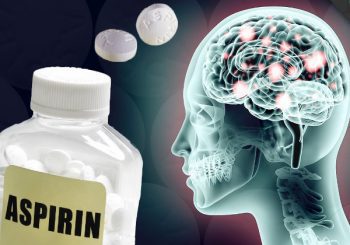By Sayer Ji
Contributing writer for Wake Up World
Originally published at greenmedinfo.com and reproduced here with permission.
For decades, doctors recommended a so-called “baby” or “low-dose” aspirin to prevent heart attacks and stroke. New research shows that this practice is outdated, and may have life-threatening side effects, including deadly brain bleeding.
[pro_ad_display_adzone id=”110028″]
Research on the adverse effects of so-called “low dose” aspirin has been accumulating for decades. In fact, we’ve indexed research going back to 1970 on over 50 adverse effects of aspirin signaled in the biomedical literature, all of which you can view on our Aspirin database. Only last month, doctors began reversing decades old aspirin recommendations by warning that the deadly risks of taking a baby aspirin daily outweighed benefits for heart disease and stroke. Despite this, Bayer still markets their aspirin brand as a “Wonder Drug,” “for heart health,” “for stroke prevention,” “for saving lives,” and “for pain relief,” on their website.
Despite Bayer’s resistance to communicating clearly to consumers the real risks of their products (including their inherited “headache” of Monsanto’s toxic Roundup herbicide), concerning research about aspirin’s dark side continues to accumulate.
A new report, published in the journal JAMA Neurology, links low-dose aspirin to increased risk of bleeding in the skull. Titled, “Frequency of Intracranial Hemorrhage With Low-Dose Aspirin in Individuals Without Symptomatic Cardiovascular Disease,” the high gravitas and high powered systematic review and meta-analysis evaluated 13 previous studies involving more than 130,000 people ages 42-74 who had no previous history of heart disease or stroke, and who received either a placebo or low-dose aspirin (~81 milligrams) to prevent the conditions.
According to the study results, people who took the placebo had a 0.46 percent risk of head bleeds during the combined trial periods. The aspirin group, on the other hand, had a 0.63 percent risk which represents a 37% higher relative risk.
The study concluded:
“Among people without symptomatic cardiovascular disease, use of low-dose aspirin was associated with an overall increased risk of intracranial hemorrhage, and heightened risk of intracerebral hemorrhage for those of Asian race/ethnicity or people with a low body mass index.”
In a previous article titled, “The Evidence Against Aspirin And For Natural Alternatives,” we have discussed in greater depth the dark side of aspirin and some natural, evidence-based alternatives, with pcynogenol probably the most compeling from the perspective of clinical trial work comparing it to aspirin.
Learn more by reading additional articles and study papers on our Aspirin database. And don’t forget to share this article with friends, family, and loved ones, as well as your health practitioner who may not yet be aware of the new research about aspirin.
Recommended articles by Sayer Ji:
- Has The Holy Grail of Radioprotective Foods Been Found?
- Doctors Reverse Decades Old Aspirin Recommendation: Deadly Risks Outweigh Benefits for Heart Disease and Stroke
- Toxic Massage: The Dark Side of A Highly Therapeutic Modality
- Magnesium Puts Psychiatric Drugs to Shame for Depression
- CDC Stats: Opioids Kill 4x More Than the Vietnam War; Natural Medicine is the Solution
- 8 Ways Microbes Can Save Us From Ourselves
- 6 Natural Ibuprofen Alternatives Backed by Clinical Research
- Brain Regeneration: Why It’s Real and How To Do It
- Beet Juice Boosts Cognitive Function In One Dose
- 6 Bodily Tissues That Can Be Regenerated Through Nutrition
About the author:
Sayer Ji is the founder of Greenmedinfo.com, a reviewer at the International Journal of Human Nutrition and Functional Medicine, Co-founder and CEO of Systome Biomed, Vice Chairman of the Board of the National Health Federation, and Steering Committee Member of the Global Non-GMO Foundation.
For more, visit GreenMedInfo.com and Facebook.com/GreenMedInfo, or sign up for GreenMedInfo’s free e-Newsletter.
© January 31st, 2019 GreenMedInfo LLC. This work is reproduced and distributed with the permission of GreenMedInfo LLC. Want to learn more from GreenMedInfo? Sign up for their newsletter here.
[pro_ad_display_adzone id=”110027″]








